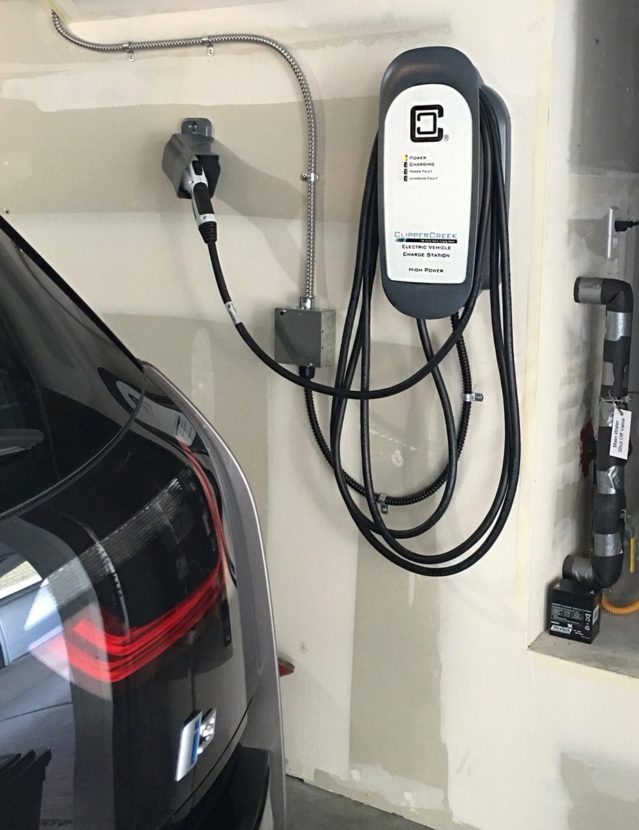√Here’s How You Can Get Tax Rebates for Installing a Home EV Charger
You probably already know about the federal and state tax rebates customers get for buying electric cars. While the qualifications for those rebates have changed in recent months, they’re still available for many EVs on the market. However, tax rebates don’t end at buying the car. There are additional tax rebates for buying residential and commercial EV chargers as well. This guide from Clipper Creek breaks down the sorts of rebates that are available and how to get them.
Installing a home charger is must for any EV owner. They’re cheap enough now that, as long as you have the electrical requirements at your home or business necessary for a home charger, anyone who owns an EV can have one. The cost comes down even further, though, as every state in the U.S. offers tax rebates for EV chargers.
The rebates vary between different states, as well as between residential and commercial chargers. For instance, I live in New Jersey and if I buy a charger through the Charge Up Residential Charger Program, I’d be eligible for a $250 rebate. That doesn’t sound like much, especially when the NJ state EV rebate can be as much as $5,000. However, charging stations only cost a few hundred dollars on average. Installation costs can bump that price up quite a bit but if your home’s electric box has a 50 amp breaker already, it can be a DIY job.
Commercial customers, such as small businesses, that want to install EV chargers for their business (either for customers or employees or both) can get rebates for each charge port installed. However, there has to be a minimum of two ports installed and a maximum of ten. There are also different rebates depending on the different power companies the business uses.
These rebates vary between state to state, so be sure to check this list to see what sort of rebates are available in your state. If you’re an EV owner, or thinking about buying an EV, and don’t have a home charger, I’d highly recommend you get one. Not only does it charge much faster than a standard 120-volt wall socket, but it’s far more convenient. You just pull up and plug in, as you would at a charging station in public. Depending on the car, most home chargers are capable of fully charging an EV overnight. So you plug in when you get home from work, let it charge all night, and then you have a full battery in the morning, every morning. It’s like having your internal combustion car refueled overnight, every night. For any EV owner, it’s a no-brainer. And if you need help choosing a charger, here’s a helpful guide.
[Source: Clipper Creek]
Source: https://ift.tt/WrCp0t2

Post a Comment for "√Here’s How You Can Get Tax Rebates for Installing a Home EV Charger"
Post a Comment